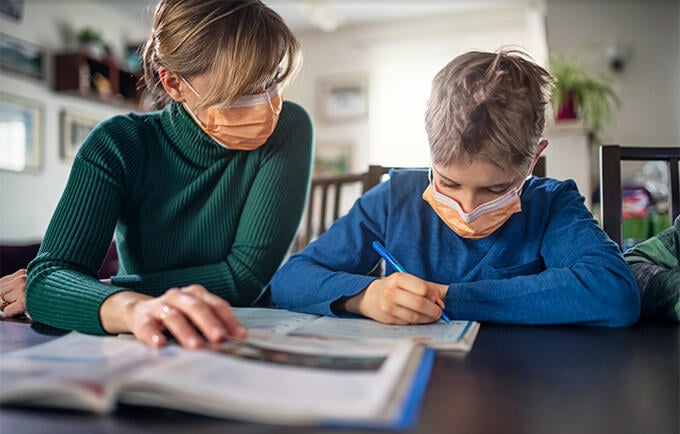BELGRADE, Serbia – Though the COVID-19 pandemic and associated lockdown and social-distancing measures are creating unprecedented challenges for everyone, women in Serbia are paying a heavier price as the pandemic worsens existing gender inequality.
Women in the paid workforce, who typically earn less and hold less secure jobs than men, have been disproportionately hit by COVID-19 and the plummeting economic activity that has resulted. In Serbia, 7% of employed women have lost their jobs or been pressured to take forced leave since the pandemic began, compared to 4% of employed men.
These and other consequences of COVID-19 on women’s and men’s economic empowerment were published in a recent analysis conducted by UNFPA and UN Women in Serbia.
The analysis also showed that women are more likely to be working from home than men (56.4% compared to 34.1%), due to their overrepresentation in many of the industries hardest-hit by COVID-19, including education, social protection and public administration services.
As quarantine measures keep people at home, while also closing schools and day-care facilities, the amount of unpaid care and domestic work has exploded for both women and men, but women continued to shoulder the bulk of that burden. This has meant months of additional work for women who are balancing full-time employment with childcare and schooling responsibilities.
“According to the analysis, women did most of the cleaning, cooking and caring for children, while men mostly focused on shopping, household management and caring for pets,” says Milana Rikanovic, the head of UN Women in Serbia. “These responsibilities were clearly divided in many households even before COVID-19, and the pandemic has only reaffirmed them.”
The pandemic has also created difficulties for many people in terms of accessing basic services and maintaining their well-being. Almost one third of women and one fifth of men surveyed said they have experienced an impact on their psychological well-being, mainly in the form of stress and anxiety. This gender disparity can be attributed to the higher engagement of women in frontline sectors responding to the pandemic as well as the increased burden they bear in caring for their household and family.
The analysis additionally showed that Serbia’s health system has become overloaded and fully focused on coping with the necessary responses to the pandemic. This has restricted or outright eliminated access to non-COVID-related health care, with women having even less access than men. The gender gap in accessing health-care services was particularly large in rural areas, where 30.6% of women reported difficulties in accessing health care compared to 15.8% of men.
“In times of crisis, sexual and reproductive health needs are often relegated to the periphery – with staggering consequences. Additionally, women and girls may be at higher risk of intimate partner violence and other forms of domestic violence due to increased tensions in the household,” said John Kennedy Mosoti, UNFPA Country Director for Serbia.
He added that 30% of women in Serbia say that they think discrimination and domestic violence have increased during the pandemic, compared to only 18% of men.
This article was originally prepared and published by UNFPA and UN Women in Serbia.


